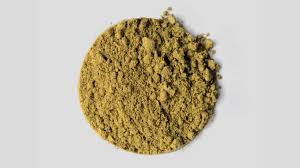Athletes, bodybuilders, and others wanting to gain weight or muscle mass utilise protein powders as a nutritional supplement. One of the most popular types is hemp protein powder, which is created by crushing hempseeds into a fine powder. It has an earthy, nutty flavour and is commonly used to improve protein intake in shakes or smoothies. Hempseed is a high-quality vegan protein that includes all nine essential amino acids, and fibre, good fats, and minerals. This article examines the benefits and drawbacks of hemp protein powder to see if it is the best plant-based protein powder .
Hemp is a complete protein, meaning it contains all nine essential amino acids that humans require from their diet. However, research on the exact quantities of these amino acids is conflicting. It protein has an amino acid profile that is similar to egg whites and soy, both of which are high-quality protein sources, according to one study. Other studies, on the other hand, have found that hemp contains relatively low quantities of the important amino acid lysine, making it a lower-quality source of that nutrient. Depending on the brand, a 1/4-cup (30-gram) dosage of hemp protein powder includes roughly 120 calories and 15 grammes of protein. That’s less protein per serving than more refined soy or pea protein powders, which can contain up to 90% protein. Hempseed, on the other hand, is a good choice for individuals who prefer less refined protein sources.
Hempseed is easy to Digest
Animal proteins are easier to digest than plant proteins in general, although studies suggest that 91–98% of the protein in ground hemp seed is digestible.
This implies that almost all of the amino acids in hemp protein powder can be used by your body for vital bodily activities including repair and maintenance. Hemp, according to researchers, is easy to digest because it contains the proteins edestin and albumin, which your body can swiftly break down. Other studies, on the other hand, regard hemp protein to be of middling grade, similar to lentils in terms of digestibility and amino acid concentration. Heat processing reduces the digestion of hemp protein by roughly 10%, according to research, so look for hemp protein powders that haven’t been heated.
Hempseed is a good source of Fiber
Diets high in fibre have been linked to a number of health benefits, including a lower risk of colon cancer, better blood sugar control, and better gut bacteria. According to research, women and men should consume 25 and 38 grams of fibre per day, respectively, yet only around 5% of American adults follow these recommendations. Hempseed protein, for example, is abundant in fibre and may be able to fill this void. The amount of fibre in hemp protein powders varies depending on whether they are made from hulled or unhulled hemp seeds, and whether or not additional fibre is added. Most hemp protein powders provide 7–8 g of fibre per 1/4 cup (30 g), which is 18–28% of the RDI for men and women, respectively.
Contains Unsaturated Fats
Hemp protein powder is created from hemp seeds that have been pressed to extract the oils. It still has about 10% of the fat content of the original seeds.
Around 3 grams of fat are included in a 1/4-cup (30-gram) serving, the majority of which is unsaturated and beneficial to heart health. Hempseed also have a perfect 3:1 ratio of omega-6 to omega-3 fatty acids. A normal Western diet has been associated with several chronic ailments, including heart disease and cancer, due to an uneven 15:1 ratio of these fats. Consuming foods with lower omega-6 to omega-3 ratios, such as hemp seeds, can help rectify this imbalance and promote heart health. Hempseed protein powder includes more fat than other protein isolates since it is less refined.
Earthy Taste
The taste of hemp protein powder is earthy, nutty, or grassy, and it is brownish-green in appearance. While many people appreciate hemp protein powder’s flavour, others find it overpowering. Before buying hemp protein in bulk, test a tiny bit first to determine if you like it. Hemp protein is slightly grittier in texture than other types of protein powders since it is less processed. It combines well in smoothies and shakes, but when mixed with water, it might become sandy.
Side Effects and Precautions
While hemp protein powder is generally harmless, there are some possible adverse effects. Some people may develop gas, bloating, or diarrhoea if they ingest too much hemp quickly since it includes a lot of fibre. Hemp protein powder should also be avoided by persons with hemp allergies. It may be harmful to pregnant or nursing women, people with anaemia, and those with weakened immune systems, according to a few animal studies, but human research are needed. Hempseed contain very little of the intoxicating chemical THC, despite being in the same plant family as marijuana. According to research, eating up to 0.67 pounds (300 grams) of hulled hemp seeds per day had no effect on urine drug tests.
ALSO READ : BROWN RICE PROTEIN
